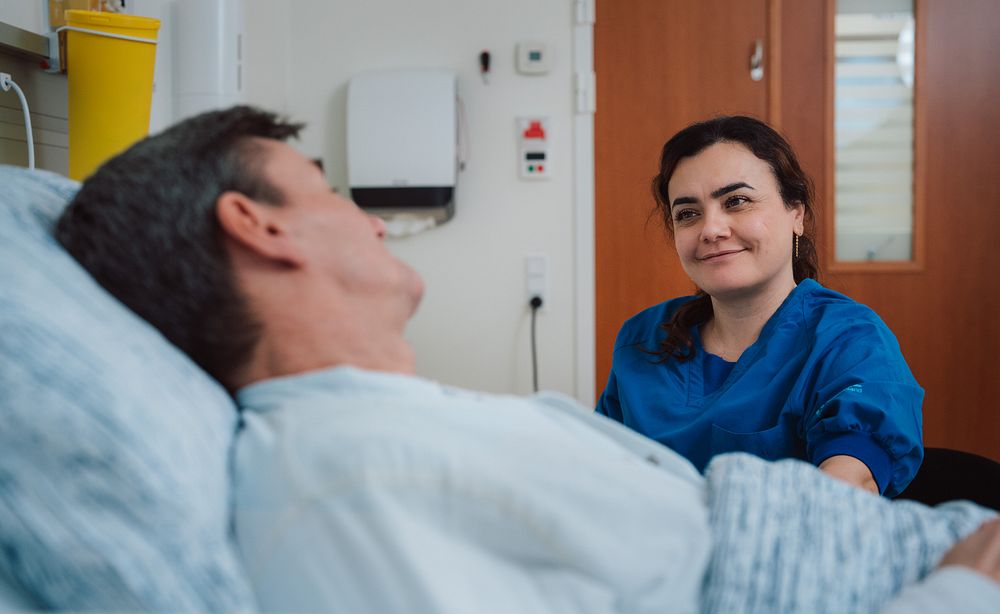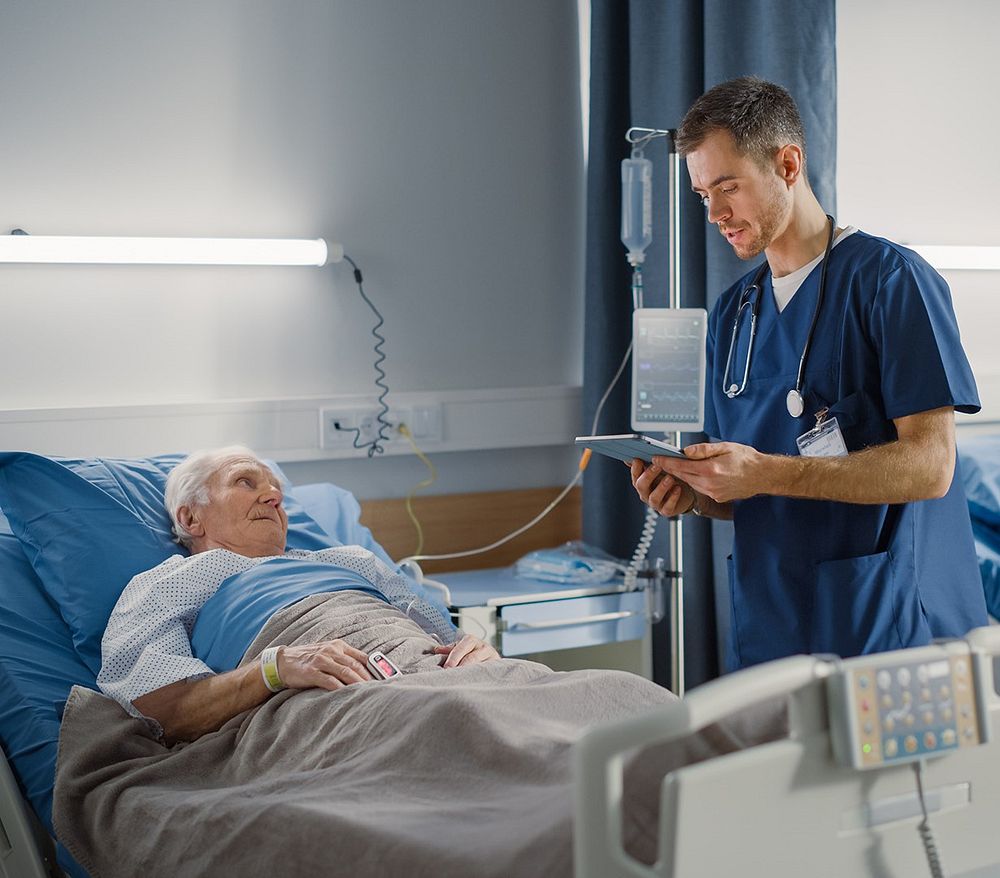Press release -
Innovation project to increase well-being for patients and staff at super hospitals
The high-tech single-bed rooms at the new super hospitals are practical and efficient, but patients feel lonely. A new innovation project aims to develop a technical solution to enhance the well-being and communication of patients and staff alike.
As health staff at modern hospitals have to keep an eye on increasing numbers of patients in single-bed rooms, the patients are less often in contact with staff. This means that patients can feel overlooked and uncertain, while a fall or sudden deterioration in their condition is discovered later than if they had been in a multi-bed room.
A new project will investigate how the use of artificial intelligence (AI) and location data can improve well-being and mutual awareness between patients and health staff.
Uncertainty leads to staff being summoned more often
In collaboration with staff and patients from Bispebjerg Hospital and researchers at the University of Copenhagen, the Danish software company Systematic will develop an IT solution that patients can access via the bedside Powernet FlexCare monitor. It will give patients an overview of which doctors and nurses are assigned to them, and which of them are currently in the department. Patients are expected to be able to see what will be happening in the course of the day – and they can use the monitor to make contact with staff.
“The new super hospitals have given us the most high-tech – but also quite lonely – hospital rooms. The patients have ample peace and quiet and care, but the flip side is that they lose any sense of what is happening around them, and when they can be expected to learn more about their treatment. This makes them feel uncertain, resulting in staff being summoned more often. These are some of the challenges we want to address with this project,” says Brian Holch Kristensen, Chief Innovation Officer at Bispebjerg Hospital, which is one of the iAware innovation project partners.

Technology to remove barriers between patients and staff
By means of sensors, the project will register the routines in the departments as well as staff attendance. The idea is that, by employing AI, this data can be used to give patients an indication of when they can expect a ward round or a visit by, for example, the physiotherapist that day.
“In other words, we will use technology to remove the walls between patients and staff. iAware will create a kind of ‘mutual awareness’, where patients and health professionals become more aware of the treatment process, work routines and patient needs. The patients can see everything via the monitors in the room, while the staff can do so on the mobile phones they carry,” says Naja Holten Møller, Associate Professor at the Department of Computer Science at the University of Copenhagen.
She expects that the solution, via information sharing with patients, will reduce the number of patient calls, which can be a stress factor for staff. On the other hand, it will also ensure that reticent patients who are reluctant to disturb busy staff are not overlooked. This is because the system informs the staff that it’s time to check up on a patient or perform a scheduled task.

Data goes both ways
A call from a patient who needs help with a specific task is sent to the relevant employee, i.e. the person with the right skills for the task who finds themselves in close proximity to the patient. This means fewer steps for staff and better utilisation of their time, while also doing away with the flashing lamps that disturb everyone in the corridor.
“Lots of hospital technology has been developed to support the clinical work. iAware is innovative because the solution focuses on the well-being and peace of mind of both patients and employees, and because it provides patients with insights into the staff’s work routines. Until now, the focus has been on gathering data about patients – now patients will also find out about the work of the department,” says Lene Buch, Senior Clinical Adviser, Systematic.
She also emphasises the importance of an ethical and responsible approach to the use of AI and tracking technology, and patients and staff are therefore also involved in the development work – the solution will be co-created by all relevant parties.
A prototype is expected to be ready for testing in 2026.
The consortium behind the iAware project comprises Systematic, the Department of Computer Science at the University of Copenhagen, Bispebjerg Hospital, the technology company Powernet and the Danish Society for Patient Safety.
The project has received DKK 9 million from Innovation Fund Denmark.
Topics
- Data, Telecom, IT
Categories
- innovation
- hospital
- it
- digitalisation
- healthcare
Established in 1985, Systematic A/S develops software and system solutions to customers in both the public and private sector. A common feature of these customers is a need to integrate, compare and analyse large volumes of complex data, and to generate an overview that allows decision-making based on a solid foundation, often in critical situations.
Systematic’s software solutions are used in healthcare, intelligence, law enforcement, defence, education, renewable energy and utilities industries.
Today, Systematic is the largest privately owned software company in Denmark, with solutions sold to customers in 50+ countries. More than 1 million people worldwide use Systematic solutions and services every day.
Systematic has approximately 1,100+ employees and is headquartered in Aarhus, Denmark, with offices in Copenhagen, Australia, Canada, Finland, Germany, New Zealand, Sweden, the United Arab Emirates, the United Kingdom, Romania and the United States. www.systematic.com
